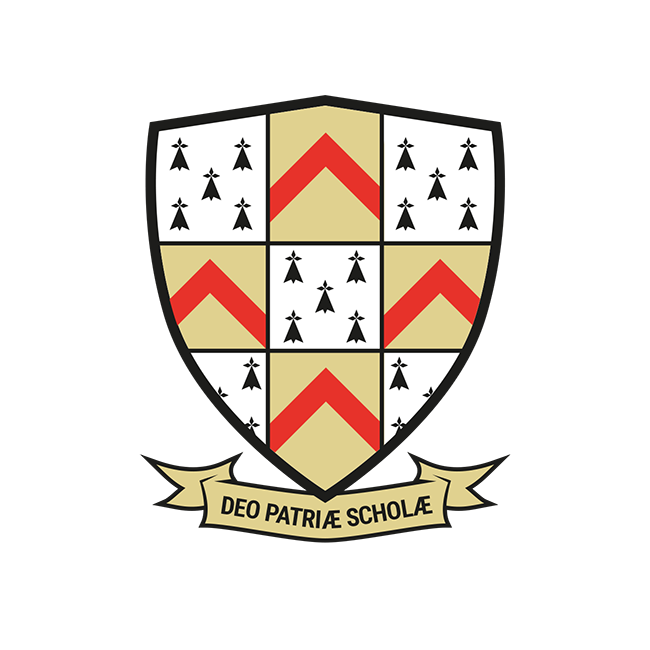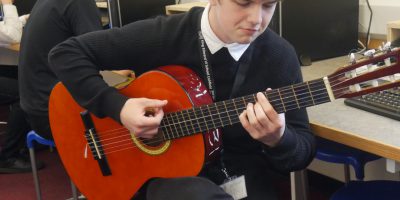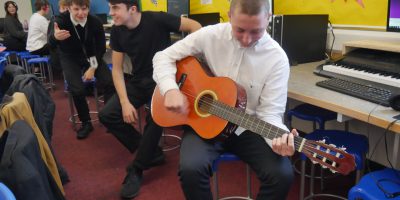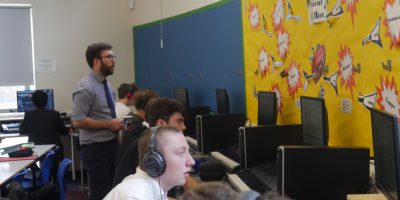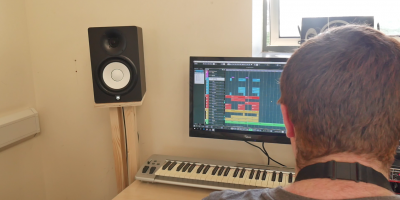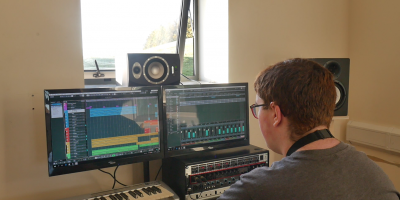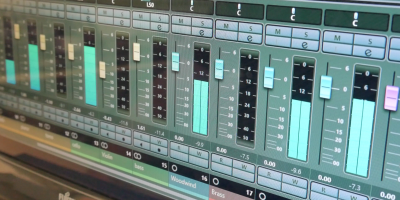Why study Music Technology?
The Music Technology course is designed to be industry focused and provides students with a range of musical and technological skills that can be applied to a wide range of careers. The course provides students with experience in studio recording, sequencing, synthesis, production, acoustics, the physics behind the music we hear and analysis skills. Students will have access to our production suite, dedicated studio, full band backline and grand piano, a range of microphones and production equipment. Students acquire a full range of skills that they can then use to assist the creation of their own music and forge a professional career in the industry.
How will I be assessed?
- Recording: Students will learn how to capture, mix and master a particular song. Through this process, students will need to appropriately select microphones and a range of hardware to ensure they achieve the best capture of the given song before strengthening their skills in mixing (EQ, compression, effects) to produce a professional mix.
- Technology-based composition: Students will respond to a brief and produce a creative composition. This requires them to use the full range of sequencing, sampling and producing skills they will have acquired through the course, alongside effective approaches to composition and creative use of technology.
- Listening and Analysing: Students will learn about the development of music technology over time and techniques that were typical around certain eras or genres. Students will develop a discerning ear for the recording and production techniques that have been used and use this to influence their own music making. Students sit an exam in which they demonstrate their understanding of these developments, within the context of unfamiliar commercial recordings.
- Producing and Analysing: This practical exam allows students to demonstrate their skills and knowledge of sound theory, editing, mixing and production through a series of practical and written tasks.
Prerequisites
The ability to play a musical instrument to a good level is desirable.
- An interest in production techniques, producing music, equipment and exploring the principles of sound.
- Good ICT Skills
What skills will I gain from studying Music Technology?
- The course provides the opportunity to develop skills in sound recording, mixing, production techniques (studio and live) and industry-standard practices.
- The opportunity to learn how to use industry-standard equipment (using Cubase DAW, digital mixing console and a wide range of equipment) and apply that to their own situation.
- High levels of technical proficiency that students can then apply to their own creative work, whether that be recording, producing music or generating media related content.
- Students develop as effective, independent learners who can reflect critically and make informed judgements on their own and others’ work.
Where can Music Technology lead?
Admission to Universities or Conservatoires of Music; apprenticeships in the music and events industry; careers in sound engineering live events; teaching; music management; publishing; studio recording and production; radio; theatre; creative and administrative roles in the creative industries and composing for film, computer games, radio and television.
Additional Comment
All students receive a free copy of the basic version of Cubase to allow continued work at home. Students are also encouraged to support extra-curricular and live events at the school as part of the course.
What will I study?
Component 1 (20%)
Recording
NEA, Externally Assessed
Component 2 (20%)
Technology-based composition
NEA, Externally Assessed
Component 3 (25%)
Listening & Analysing
Exam Paper
Component 4 (35%)
Producing & Analysing
Practical Exam
